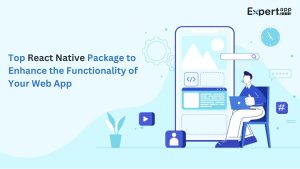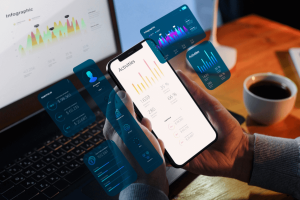Top 7 Legal Issues in App Development

App development is a good business to get into these days. People prefer to use their cellular phones or tablets over desktop computers and even laptop these days; that is why there is a high demand for app developers. So, if you have an idea for an app and you want to start putting together a company to get started on developing it, it’s a good idea to educate yourself on the legal issues that app development companies often encounter.
Here are the top 7 legal issues you should prepare for when developing an app:
#1. Company Structure
There are numerous company structure options that you can choose from. Choosing the right one can affect the growth and financial stability of your company.
Most app development companies choose to establish a limited liability company (LLC) due to the benefits. An LLC structure allows the owners of the company to have no liability for the company’s debts, but profits and losses are listed in the owner’s tax returns. The legal issues of the company are also separate from that of the owner. Therefore, when your company encounters a legal issue in the future, you can rest assured that your personal finances or properties are safe and protected. The benefits of an LLC structure are a mix between a corporation and sole proprietor or partnership.
#2. Intellectual Property Protection
Intellectual properties are anything from the app’s name and logo to the source code and design of the app. For any app development company, trademarking your app name and logo is the most basic and one of the first things you should do. Doing this protects the name and logo of your company from being stolen, or if some other person also has the same idea as yours, then you can prevent that person from using a similar name and logo. Applying for a trademark at the United States Patent and Trademark Office (USPTO) provides federal protection to your intellectual properties from copycats.
#3. Employment Contracts
Outsourcing is a common practice among app development companies. When hiring employees, it’s essential that an employment contract is in place to address the concerns of the employer and employee. It’s necessary to specify the benefits, bonuses, working hours, and other conditions.
The issues regarding the ownership of the source code or other intellectual property produced during the length of employment must also be clearly stated and understood by both parties; the employer and the employee are owned by the company. It’s vital to do this to prevent any further problems in the future.
#4. Non-disclosure Agreements
When outsourcing or working with another company, it’s important that a non-disclosure agreement (NDA) is signed so that the other party or parties cannot use or disclose important and protected intellectual properties from your app development. This is another way of protecting your app from being copied in some way.
#5. Terms of Use
This legal agreement is between the app development company and the users of the app. Whenever a user decides to download and use the app you have produced, they should first agree with the terms of use. In the terms of use, the development company states the information about the app, what it’s for, how it should be used, how it should not be used, and the ensuing penalty for using it the wrong way.
It’s very important that apps have terms of use so that no user can claim ignorance when something untoward happens to them while using the app. This is especially true when your app allows the users to interact with each other, members of the app company, or you, the owner.
#6. Privacy Policy
This is a huge concern for every app that collects personal information like email address, name, age, location, and other sensitive data. The reason behind it is that collecting this sensitive personal information puts your app at risk for possibly violating privacy laws. One way of circumventing that legal peril is by putting in place a privacy policy that informs the users of the collection of sensitive personal information and informing them how the company will use it.
It can become complicated, though, when you’re collecting data from minors or children below the age of 13. There are stricter guidelines and requirements based on the Children’s Online Privacy Protection Act (COPPA). So, if you’re targeting children as your app users, then be prepared because it’s a difficult path to take.
#7. Copyright Infringement
Copyright infringement is necessary for applications that allow users to upload, use, or stream materials protected by copyright. It’s vital that the company state the policy or guideline when users infringe the copyright of said materials so they can protect themselves from the legal obligation of their user’s mistake.
All your time, effort, and attention are focused often on the app development itself in the beginning. However, it’s also essential to know the legal issues mentioned above before putting up your app on the market for anyone to download. Recognizing these issues can help you avoid legal troubles and save you a lot of resources and money on legal fees.






